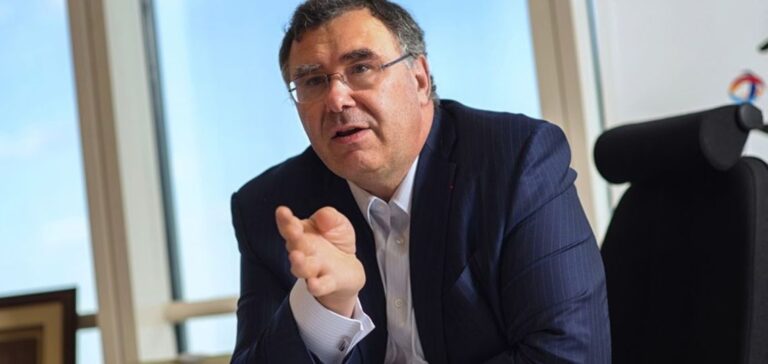Patrick Pouyanné, CEO of TotalEnergies, explicitly marked green hydrogen as “at an embryonic stage”, disputing the optimistic objectives of the European Union, which suggests an annual production of 20 million tonnes by 2030. He recommended that we “recognize that we’re only at the beginning, and stop aiming for figures like 10 or 20 million tonnes”. A recent study by the French Atomic Energy Commission (CEA) predicted an industrial demand of just 2.5 million tonnes of low-carbon hydrogen per year by 2030.
Current technological limitations
The world’s largest electrolyzer, to be deployed in China in July 2023, has a capacity of 260 MW capable of producing 20,000 tonnes of low-carbon hydrogen per year, but it’s an exception, as Pouyanné pointed out: “One, not ten, just one”. He stressed the youth and high cost of electrolyser technology, adding that it is impractical to reduce the costs of green hydrogen as long as it remains a niche market.
A plea for biofuels
For Patrick Pouyanné, producing green molecules from biomass biofuels is the most effective strategy to date. He also argued that for sustainable aviation fuel (SAF), it’s better to rely on biomass rather than turning to green hydrogen to produce e-fuels. “Let’s give priority to biofuels, there’s a lot to be done and it’s working,” he pleaded, highlighting the current practicality and efficiency of biofuels compared to green hydrogen.
By underlining the challenges of green hydrogen and highlighting biofuels, Patrick Pouyanné of TotalEnergies highlights the need to adapt renewable energy strategies to current technological and economic realities, while actively exploring immediately applicable solutions.






















